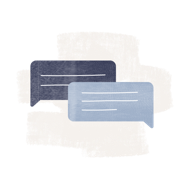SBA loans are considered one of the best small business loans. Small business owners who qualify will get loans with competitive interest rates and favorable repayment terms. But what happens if you are turned down? Here we’ll share common reasons SBA Loans may be declined and what you can do about it.
First, some background. The U.S. Small Business Administration (SBA) generally doesn’t make loans. Instead, it guarantees loans made by lenders approved by the SBA. The exception is SBA Disaster Loans (including Economic Injury Disaster Loans) which the SBA makes directly to small business owners.
What are the Minimum Qualifications for a SBA Loan?
There are over ten different types of SBA loans, and each has its own qualification requirements. Generally, though, SBA loan requirements include the following:
To be eligible, businesses must generally:
- Be a small business as defined by SBA size standards
- Not operate a business in a ineligible industry
- Operate as a for-profit business
- Do business in the U.S. or U.S. territories (or propose to do business in the U.S.)
- Have reasonable owner equity
- Not be eligible for similar loans elsewhere
- Have acceptable credit
There are some exceptions to these qualifications. Disaster loans may be available to certain nonprofits, for example, and the eligibility standards for COVID-19 EIDL loans due to the pandemic were expanded to include organizations typically not eligible.
Learn more about SBA loan requirements here.
Possible Reasons for Your SBA Loan Application to Be Declined
Given that background, let’s look at some common reasons why an SBA loan may be declined:
Credit Scores
Entrepreneurs with bad credit will find it difficult to get an SBA loan. You should have good credit to get an SBA loan; however, what qualifies as good credit will vary depending on the lender and loan program.
Lenders generally must check personal credit history for all owners with 20{797b2db22838fb4c5c6528cb4bf0d5060811ff68c73c9b00453f5f3f4ad9306b} or greater ownership. SBA guidelines typically require “acceptable credit”, but for the most part, don’t have a minimum required personal credit score to be approved.
However, there are some loans that require a minimum FICO SBSS score as part of a prescreen of the application. This business credit score can combine information from personal and business credit reports, along with financial data, into a single score.
Current minimum FICO SBSS scores:
- 7(a) Small Loans: 155
- Community Advantage: 140
- Express Bridge Loan Pilot Program: 130
If the borrower’s FICO SBSS score does not meet the minimum, there will be a manual credit review. It is still possible the application may be approved with a lower score, depending on the outcome of that review.
Negative items on the credit score such as liens, judgments or bankruptcy files must be explained in the loan application when the lender submits it to the SBA.
Cash Flow
A business that does not have the ability to repay the SBA loan (now or in the near future) will be declined. When lenders analyze whether the business will be able to make payments, cash flow will be a key part of the analysis. As the SBA standard operating procedures explain:
“The cash flow of the Applicant is the primary source of repayment, not any expected recovery from the liquidation of collateral. Thus, if the Lender’s financial analysis demonstrates that the Applicant lacks reasonable assurance of repayment in a timely manner from the cash flow of the business, the loan request must be declined, regardless of the collateral available or outside sources of repayment.”
For existing businesses, financial analysis will be based on “the three most recent years of historical financial information (tax returns or balance sheet with debt schedule and income statement) plus an interim financial statement.”
What about startups? The guidelines state that for new businesses, cash flow can be “based on detailed projections, including the supporting assumptions which reflect positive cash flow within 2 years.”
Collateral
You don’t have to have collateral to get an SBA loan. In fact, these loans are designed in part for borrowers who can repay the loan but don’t have collateral. However, the SBA will require available collateral to be pledged to secure the loan. That could mean a requirement to pledge home equity if it is available, and if business assets aren’t sufficient to secure the loan. (For loans of $25,000 or less, the lender is not required to take collateral.)
Also worth noting: Those who own 20{797b2db22838fb4c5c6528cb4bf0d5060811ff68c73c9b00453f5f3f4ad9306b} or more of the business must provide a personal guarantee.
Equity Injection
A business owner who is starting or buying a business but has not put her own funds into the business may be declined. This contribution from the owner is referred to as “equity injection.” Generally, the SBA requires a minimum equity injection of at least 10 percent of total costs for a new business (less than one year old) or 10 percent in the case of a change in ownership. There are some exceptions, so talk to your lender if this is a concern.
Credit Elsewhere
Small business owners who are eligible for conventional small business loans on similar terms are not eligible for SBA financing. Don’t worry too much about this requirement as the lender is responsible for documenting why the borrower cannot get similar financing elsewhere. However, if the SBA does not consider the lender’s explanation adequate it could result in a rejection.
Criminal History
Borrowers who do not meet the SBA character standards (primarily related to criminal records) may be turned down. A criminal history does not disqualify all applicants, but those who are currently Incarcerated, on probation, or on parole or those who are currently subject to an indictment, criminal information, arraignment, or other criminal charges will not be eligible.
Borrowers must fill out a borrower information form that includes questions about criminal history. If the borrower answers “yes” to question 17 about current incarceration or criminal charges,, the loan application will be declined. If they answer “yes” to questions 18 or 19, the lender must take additional steps to determine eligibility.
Note: The SBA requires applicants to answer “yes” even when records have been sealed or expunged, and promises to keep that information private and confidential. It notes: “There are no exceptions or waivers to this policy.”
Prior Loss to Government
Borrowers who have defaulted on loans to the federal government may be denied an SBA loan.
SBA loans are guaranteed by the SBA up to a certain percentage (depending on the loan program). If a borrower doesn’t repay the loan and the SBA cannot collect, the risk can ultimately fall on taxpayers. This is a fairly detailed topic with specific topics, so if you have defaulted on a prior SBA loan, federal student loan or federal tax debt, be sure to discuss this with your lender. Certain federal debts may be acceptable, particularly if the borrower is in a formal repayment plan.
What Can I Do Next After a SBA Loan Denial?
First, try to understand why your application was declined. The lender must provide a letter explaining why you were denied, but that may not always be clear. Ask the lender to explain any reasons you don’t understand. Don’t be afraid to ask questions and insist on helpful answers.
Then try to understand whether the reasons you were declined were based on the lender’s requirements, or an SBA requirement. Here’s the difference:
The SBA sets minimum standards for each program that the lender must follow so that the lender can collect using the SBA guarantee if the borrower fails to pay back the loan. But beyond that, the lender may set its own policies, as long as they don’t discriminate against borrowers on a prohibited basis. Examples of lender standards that may vary by lender include a minimum credit score or time in business, or the industry.
Can I reapply for an SBA loan if denied?
You may be able to reapply for an SBA loan, depending on the reason you were denied, the type of loan and the lender status.
If you were denied because you don’t meet SBA requirements (small business size standards, for example, or industry) you may be able to ask for reconsideration. For example, if you were denied due to a previous criminal history and you want to appeal, you can request a reconsideration of an adverse character determination within 6 months of the date of SBA’s decision.
In some cases you may not be able to reapply for a year, but the lender may be able to request reconsideration. The SBA guidelines state that once your application is submitted to the SBA’s Loan Guaranty Processing Center (LGPC), an application…declined by the LGPC may not be approved by any Lender under its PLP Authority. ETran and SBA One will not permit the submission of such an application under any Lender’s PLP authority for a period of 12 months from the date of the withdrawal, screen-out, or decline of the application.”
PLP refers to the Preferred Lender Program which refers to lenders approved to make a number of decisions about SBA loans to streamline the process. Etran and SBA One are technology systems used by the SBA.
If the lender believes the reason(s) for decline have been overcome, it may submit a request for reconsideration of the loan, along with a detailed written explanation of how the applicant has overcome the reason(s) for decline. Lenders must do this within six months from the date of decline. If they do so later, they must include updated, detailed financial statements.
All of this means that if your application for an SBA loan is rejected, you’ll want to first seek guidance from your lender. Try to address the reasons you were declined and ask whether your application may be reconsidered. If your experience with that lender leads you to believe they are not a good fit, talk to another lender but make sure you let them know you have previously been declined and why. They may recommend you take additional steps or wait before applying again.
If your application for a COVID-19 Economic Injury Disaster Loan (EIDL) was declined, you have up to six months to reapply. This program offers working capital loans of up to $2 million with a repayment term of 30 years at 3.75{797b2db22838fb4c5c6528cb4bf0d5060811ff68c73c9b00453f5f3f4ad9306b} for small businesses.
The deadline for applying for COVID-19 EIDL loans closed on December 31, 2021 but the SBA is still accepting reconsideration requests and appeals for declined loans as well as requests for increases in the loan amount up to the $2 million limit.
You have six months from the date your application was declined to apply for reconsideration, and another 30 days if your reconsideration request is declined to appeal. You have up to 2 years after your original loan request to apply for an increase in funding unless funds for this program are exhausted.
Alternative Options If You Are Declined for a SBA loan
If you are declined for an SBA loan, you may want to consider other types of small business financing. Online lenders in particular will likely offer a streamlined application process and more flexible qualification requirements, though costs are likely to be higher than they would be with an SBA loan.
If you are having trouble qualifying because your business is a startup, you may want to consider other financing options including:
If you are having trouble qualifying for because of low credit scores, look into:
Rate This Article
class=”blarg”>





